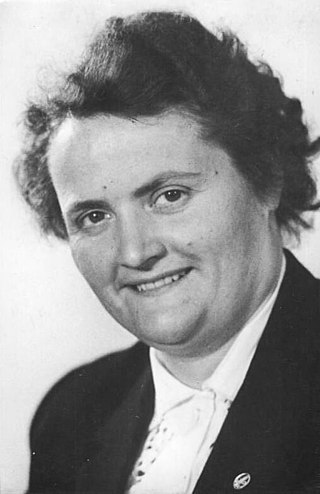Dieter Hebig (born 23 February 1957) is a German archivist and historian.
Dieter Hebig (born 23 February 1957) is a German archivist and historian.
Born in Heilbad Heiligenstadt, Hebig comes from the Thuringian region of Eichsfeld. After attending school, he completed a vocational training with a high school diploma as a mechanic for data processing and office machines. During this time, Hebig was already involved in voluntary work for the preservation of floors and monuments. After one year as a museum guide in Kloster Veßra, he studied archaeology and history for five years at the Humboldt-University of Berlin. He completed his studies in 1982 with Botho Brachmann as a graduate archivist.
He then became a research assistant at the Staatliche Archivverwaltung (State Archive Administration) at the Ministry of the Interior of the GDR in Potsdam. His last position there was chief editor of the journal Archivmitteilungen for theory and practice of archiving. In 1991, Hebig was also affected by the dissolution of the State Archive Administration, which had meanwhile been transformed into the Central Archive Office of the GDR.
He then became self-employed and operated the company Archiv-Service Potsdam until 2007. Since then, Hebig has been working for the company Schempp Bestandserhaltung GmbH in Kornwestheim. There, he is head of the departments of conservation and damage restoration as well as protective packaging for cultural property. [1]
Ewald Adolf Ludwig Wilhelm Schuldt was a German prehistorian who carried out significant research into the megaliths of northern Germany.
Luise Ermisch (born Luise Thürmer; 20 May 1916 in Halle – 17 January 2001 in Mühlhausen was a German political activist and later a senior politician in the German Democratic Republic, who balanced her political career with an ongoing involvement in the clothing industry.
Fritz Zeuner (1921-1982) was an East German politician, who was Chairman of the Peasants Mutual Aid Association from 1979 to 1982.

Gottfried Drechsel was an East German functionary of the Peasants Mutual Aid Association and politician. He sat in the People's Chamber between 1986 and 1990.
Hildegard Damerius was a German lawyer and politician of the Socialist Unity Party of Germany (SED) in the German Democratic Republic (GDR). Until 1934, she studied law at the Universities of Leipzig, Heidelberg and Marburg and received her doctorate in 1938, after a legal clerkship in the Saxon Ministry of Justice. As an employee of the Public Prosecutor General of the Federal Court of Justice, she was involved in the Waldheim trials.
Friedrich Rabenschlag was a German choral conductor.

Irmgard Neumann was a member of the State Council of East Germany, the country's collective head of state.

Else Merke was a member of the State Council of East Germany, the country's collective head of state, from 1963 until 1971.
Brunhilde Hanke is a German retired politician who was mayor of Potsdam and a member of the State Council of East Germany.
Anni Neumann is a retired East German politician who served between 1967 and 1971 as a member of the State Council of East Germany.

Margarete Müller is a German retired politician who was a member of the State Council of East Germany and, between 1963 and 1989, of the Central Committee of the Socialist Unity Party of Germany (SED). She was a candidate member of the SED politburo until the end of the one-party system.

Rosel Walther was a German politician who was a member of the Volkskammer and the State Council of East Germany.
Monika Werner is a German former politician who was a member of the State Council of East Germany, the country's collective head of state, from 1986 until 1990.
Richard Johannes Petzoldt was a German musicologist and music critic.
Walter August Wilhelm Schulz was a German cellist, viol player and college teacher. From 1945 to 1948 he was director of the Hochschule für Musik Franz Liszt, Weimar.
Wolfgang Lesser was a German composer and music official of the DDR.
Konrad Sasse was a German musicologist and Handel scholar.
Erhard (Eberhard) Ragwitz is a German musicologist, composer, and lecturer. From 1986 to 1989, he was the rector of the Hochschule für Musik "Hanns Eisler".
Werner Felix was a German music historian and Bach scholar. He was rector of the Hochschule für Musik Franz Liszt, Weimar and the University of Music and Theatre Leipzig as well as president of the Chopin-Gesellschaft of the DDR.
Märkische Union was a German newspaper, founded as the last CDU daily newspaper for Brandenburg, founded on February 3, 1948 with a license from SMAD. The news agency ADN reported the approval of the "occupying power" and named the newspaper title Märkische Union and Potsdam as the place of publication. The newspaper first appeared only three times a week. The then chairman of the CDU in the state of Brandenburg, Wilhelm Wolff, wrote in the first edition of the Märkische Union that Germany's unity remains the top priority.